No matter what the situation is, never let your emotions control your intelligence
Emotional awareness is the first process of defining your feelings. It can help you to manage and improve your mental health properly. When people normally feel certain types of emotions, a physical or mental reaction follows them. Most people’s thoughts run ahead of their emotions. But still, there are a few percentages of people whose emotions run ahead of their thoughts.
Today my thought says “he is the most wonderful person.” Tomorrow if he does something that I don’t like, immediately my thought says “he is not good enough.” There are situations that you don’t wish to be in. But emotions are tangled up. Thought is agile, but emotions are inactive. It’s a little sappy, it takes time, and it does not go easily.
“The way you think or believe, that’s the way you feel.” Suppose I think he is a good person, now I have sweet emotions toward him, I think he is not good, now I have bad feelings towards him. Can I think he is an amazing person and have bad feelings? Is it possible? Not at all.
It’s crucial to accept your feelings while recognizing that your emotions don’t have to control you. If you awake on the wrong side of the bed, you can take control of your mood and turn your day around. If you are a little bit angry, you can choose to calm yourself down.
Table of Contents:
- What is Emotion Management
- Why Emotion is Important
- How to Express Emotion
- Explore the Benefits of Emotion Focused Coping in Stressful Situations
- Understand Emotional Wellness with the Help of an Emotion Wheel Chart
- Which Part of the Brain Controls Emotion?
- Can Emotion change the eye color?
- Emotion vs Feeling
- How to Control Your Negative Emotions
- 8 Books on Emotions for Building Inner Strength
- Quotes to Help You Connect with Your Emotions
What is Emotion Management?

Humans are creative and spiritual beings with the ability to experience a wide range of emotions. It shapes our responses to the world around us. From love and joy to anger and fear, it responds to our actions and influences our well-being. It is also known as emotion-focused therapy. With this approach, we can develop healthier ways of responding to both positive and negative experiences.
How we manage our emotions greatly impacts our overall quality of life. When we ignore them, they can cause destructive behaviors, strained relationships, and physical and mental health issues. On the other hand, learning to effectively manage our emotions empowers us to navigate life’s challenges with resilience, maintain better relationships, and cultivate a greater sense of well-being.
It plays a pivotal role in emotional intelligence, which pertains to people’s aptitude for recognizing both their own emotions and the emotions of others. The cultivation of these skills may require dedication and practice.
One of the fundamental goals is to increase self-awareness and promote acceptance of one’s emotional responses. Rather than judging or suppressing, we learn to acknowledge and accept the full range of our feelings, including shame, guilt, and humiliation.
Why Emotion is Important?

Recognizing and effectively managing emotions stands as one of the most vital skills for personal growth and living a Better Life.
People who are regulating effectively are more likely to prosper in life, build healthy relationships, and easily manage challenges and setbacks:
It helps us to make a decision
Our intuition has a major influence on the decisions we make, from what we decide to have for breakfast to mundane choices watching Netflix shows at night. It shapes the quality of our choices and impacts the speed with which we arrive at them. Our ability to understand and manage emotions highlights the intricate interplay between emotions and decision-making processes.
It can help us feel more in control
Our emotions wield a significant effect on our mood and behaviors feeling frequent experiences of anger, anxiety, or worry can impact friendships, family relationships, academic performance, and overall happiness.
These negative thoughts may cause withdrawal from hobbies and extracurricular activities. To identify feelings of unhappiness, enabling them to explore the root causes and seek improvement solutions.
By taking charge of our emotional well-being, we contribute to our overall growth and fulfillment. Possessing the ability to speculate and recognize that we have control over our feelings profoundly impacts our sense of purpose and ownership over our lives. Embracing emotional intelligence enables us to live more fulfilling lives and become active agents in shaping our destinies.
We can ask for help
Someday when we feel emotional distress we need support from our parents, friends, or teachers. Recognizing and asking for help is a skill, and we often require ongoing guidance to understand how to manage it easily.
We may feel good from someone we trust and embrace when having someone who listens without judgment, prioritizing their reaction over the situation. Sharing our intense thoughts with a safe adult provides reassurance and guidance.
Learning to communicate with others and identifying our needs make healthy emotional regulation. By developing these skills, we build positive ways to manage and navigate challenging situations.
It helps us strike and prevent danger

Emotions can help us strike and prevent danger by recognizing and responding to potentially risky situations before they escalate.
it displays could also play an important role in safety and survival in potentially threatening situations. When we encounter danger, emotions trigger the fight-or-flight response, preparing our body to either confront the threat or flee from it. Could also prepare the body to take action. The amygdala, is responsible for triggering responses, particularly those related to fear and anger.
For example, if we encounter a wild animal or a dangerous situation, fear prompts us to react quickly and avoid possible harm.
It builds social bonding and relationship
Intelligence builds a positive mindset the capacity to perceive and respond to other people’s emotions successfully. Those with high EQ possess powerful empathy skills, which help them to recognize and comprehend the feelings of others and use this understanding to raise their communication skills. Through using empathy, you can build stronger connections, nurture mutual respect, and create a more supportive and compassionate social environment.
It allows us to understand others
The expressions of both ourselves and those around us provide valuable information in social communication. Social communication is an important part of our daily interactions and relationships. When we understand it well, it enables us to react appropriately and establish deeper, more meaningful connections with friends, family, and loved ones. By honing our ability to perceive and navigate emotions in others, we boost our interpersonal skills, fostering better understanding and empathy in our social interactions.
How to Express Emotion?
Expressing emotions requires the authentic communication of your feelings, whether they are positive or negative. Here’s a detailed explanation of how to express emotions effectively:
Identify and Acknowledge Your Emotions: Understanding what you’re feeling is the first step. Take the time to recognize and label your emotions. This could be happiness, sadness, anger, fear, excitement, or other feelings.
Verbal Expression: Use words to articulate your emotions. For instance, say ‘I feel joyful because…’ or ‘I’m upset about…’ to communicate your emotions to others. Express yourself clearly.
Body Language: Non-verbal signals, like facial expressions, gestures, and posture, play a main role in expressing emotions. A smile, a frown, open body language, or a hug can deliver feelings without words.
Artistic Expression: Creative outlets like art, music, writing, or dance can serve as incredibly powerful mediums to express emotions. These allow for a different form of communication that can help you express what words sometimes cannot.
Journaling: Writing about your emotions in a journal can be a private and therapeutic way to express and process what you’re feeling. It helps in exploring and understanding your emotions more deeply.
Use ‘I’ Statements: When communicating your feelings, use ‘I’ statements to take ownership of your emotions without making others feel blamed. For example, ‘I feel hurt when…’ rather than ‘You always make me feel…’
Healthy Expression: Find healthy ways to express difficult emotions. Instead of suppressing them, find ways to manage and release them constructively, avoiding destructive or harmful behavior.
Explore the Benefits of Emotion Focused Coping in Stressful Situations

Emotion-focused coping, as introduced by Richard Lazarus and Susan Folkman in the 1980s. These techniques are designed to change emotions and manage the distress experienced in response to difficult situations.
Suppose a person is experiencing relationship stress. A problem-focused coping strategy manages the relationship issue head-on. This technique can prove valuable in reducing the negative impact of stressful situations that are unavoidable.
Can be particularly beneficial in various stressful scenarios:
- Increase positive thinking
- Strengthen personal resources
- Reduce negative effects (feelings)
- Enhance emotional regulation
- Better transform to stressful events
- Provide a source of relaxation
- Increase awareness
- Reduction in psychological distress
- Greater sense of empowerment
Understand Emotional Wellness with the Help of an Emotion Wheel Chart
Renowned Psychologist Robert Plutchik created the well-known emotion wheel, known as the Plutchik wheel. He categorizes emotions into eight core categories, arranged in opposite pairs:
- Sadness and Joy
- Anger and Fear
- Anticipation and Surprise
- Acceptance and Disgust
According to Plutchik’s theory, these fundamental emotions can intensify, become less intense, or even blend to generate a wide range of states. The wheel serves as a visual representation of how different emotions are interconnected and can influence one another based on their placement and relationships within the model.
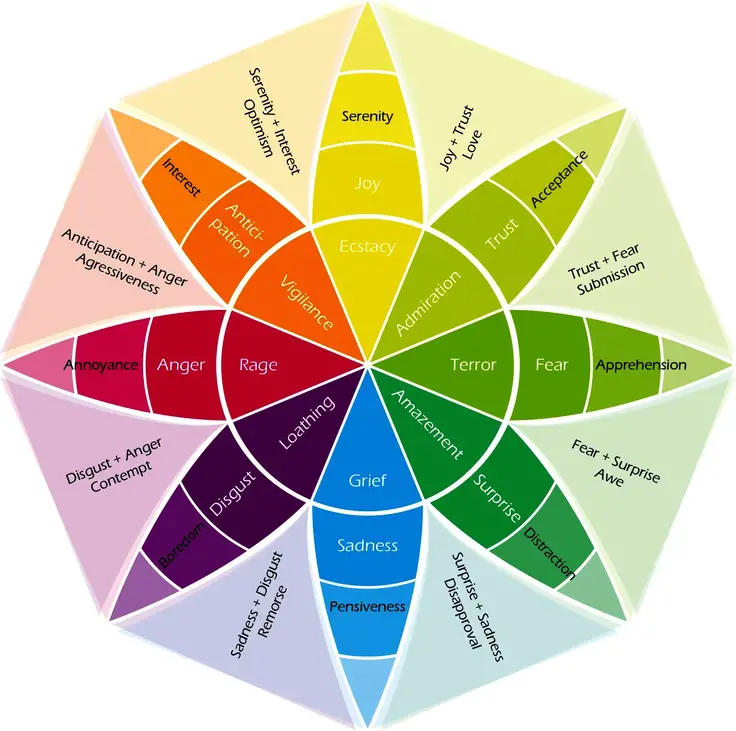
Which Part of the Brain Controls Emotion?
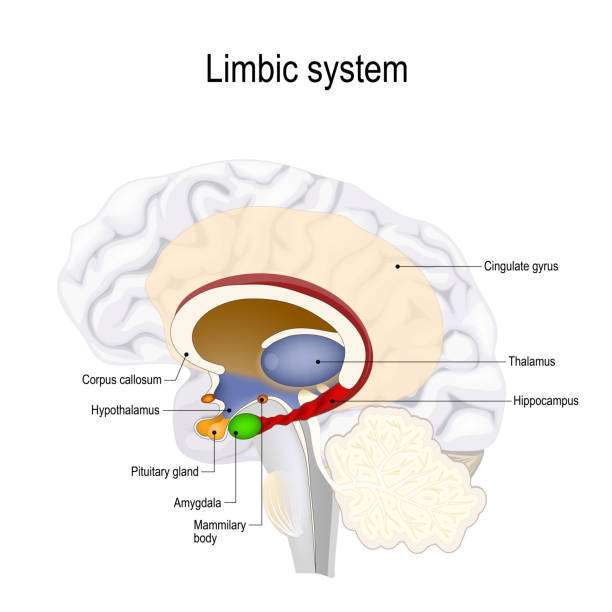
The brain is the most important and mysterious organ in our bodies. You don’t have to be a brain specialist to understand some fundamental features of the brain’s role in emotions and behaviors.
The limbic system, a complex network of interconnected structures located in the brain, plays a role in regulating behavioral and emotional responses.
Scientists have not yet reached a complete consent on the full list of structures that constitute the limbic system, these types of components are generally accepted as part of this group:
- Amygdala: The amygdala is a small, almond-shaped structure located deep within the brain. It is known as the ’emotional center’ of the brain and is involved in the triggering of fear and anger. The amygdala also forms memories and evaluates the sensitive significance of events and stimuli.
- Hippocampus: The hippocampus is responsible for the retrieval and protection of memories. It helps us stay in the present moment by helping to convert short-term memory into long-term memory and also helps to spatial awareness and understanding of the dimensions of one’s environment.
- Hypothalamus: The hypothalamus Interacts with the endocrine system (hormonal system) to maintain the body’s internal balance (homeostasis) and regulates different physiological functions, including body temperature, hunger, thirst, sleep, and sexual responses.
- Limbic Cortex: The limbic cortex contains two pivotal structures: the cingulate gyrus and the parahippocampal gyrus. Together, they influence mood, motivation, and judgment, playing an important role in shaping our experiences and responses.
Can Emotion change the eye color?
The color of our eyes remains constant and does not change with emotions or mood. When we experience different emotions, like happiness, excitement, or fear, our body releases oxytocin, a hormone that triggers various physiological responses, that cause this change in pupil size. The pupils may dilate causing differences in the perceived brightness of the eyes, but the actual color of the iris does not change.
The iris is the circular colored area around the pupil, and it controls how much light enters your eyes. Eye color is primarily determined by the amount of pigment (melanin) present in the iris, which is the colored part of the eye. People with more melanin in their eyes have darker eye colors, such as brown. While those with less melanin usually have lighter eye colors, like blue or green.
So, emotions and other factors can influence how our eyes appear, especially when there are multiple colors in the iris, the actual color of our eyes does not change. Even though it may seem like the eye color changes at times, it’s just an optical illusion, and the true eye color remains unchanged.
7 Things That Can Change Your Eye Color
Emotion vs Feeling
It is difficult to find the difference between feelings and emotions, as we use these terms interchangeably in casual conversations. We have outlined the nuances that differentiate them from each other.
According to, American Psychological Association, Emotions are automatic responses that arise in reaction to specific stimulants. It is interconnected with our brain and generated subconsciously through the activation of various brain regions, like the subcortical region, the amygdala, and the ventromedial prefrontal cortices. When these brain areas are stimulated, they trigger physiological and emotive responses, causing changes in our physical and internal states. This brain activity affects our human behavior, and responses, and can even cause physical sensations.
For example, when receiving unexpected news of a family person’s passing, the feeling of profound sadness arises. Renowned psychologists Paul Ekman and Wallace Friesen are one of the significant contributors to the study of emotions. In the 1990s, they categorized six basic emotions: fear, anger, sadness, joy, disgust, and surprise.
The Three Components of Emotion
When confronted with a situation, it activates our thoughts, attitudes, and beliefs regarding the circumstances at hand. So, they influence our perception and interpretation of the situation, ultimately determining our subsequent actions. Therefore, emotions consist of three distinct components:
1. Physiological Components (relating to the body)
These components are governed by our immediate and involuntary reactions. For example, if someone has a fear of public speaking or job interview, their heart rate may accelerate, muscles tense, feel butterflies in their stomach, and perspiration increase.
2. Cognitive Components
These components allow us to consciously and unconsciously asses the situation, influencing our subjective experiences. Our thoughts, beliefs, memories, and past experiences influence how we interpret and deal with a given situation, which, in turn, shapes our response.
3. Behavioral Components
Behavioral components encompass bodily movements, changes in facial expressions, body movements, gestures, and changes in tone of voice. When we receive a surprise gift from a loved one, our behaviors indicate a state of joy and appreciation.
Feelings

Now, let’s shift our focus to feelings. Feelings are basic perceptions of emotions. In our lives, it represents our core reactions, feelings come into play as our subjective responses to them.
We can discriminate emotions from feelings by knowing that emotions are unconsciously produced, while feelings are conscious experiences that arise from the interpretation of subconscious moods by the brain, according to Professor Antonio Damasio, a renowned expert in Neuroscience at the University of Southern California. Feelings originate in the neocortical region of the brain and are reactions to the emotional stimulus playing a pivotal role in consciousness and shaping personal and cultural achievements. This interplay between emotions and feelings ultimately ensures the preservation of life.
This distinction becomes noticeable when the brain assigns meaning to our experiences, highlighting their characteristics and interplay. Feelings can be more specific than responses and can also be triggered by physical reactions. For instance, When we are injured, we feel pain, Imagine that you have become a successful person – the overwhelming joy may give feelings of satisfaction, optimism, gratitude, and more.
Emotions and feelings are naturally integral parts of human existence, significantly shaping our decision-making process daily. Navigating our inner world and managing emotions can be challenging. However, it is important to build healthy relationships and manage it effectively.
How to Control Your Negative Emotions?
Obstacles make you sensitive but the only way you will overcome them is by keeping those in check. If you continuously check no matter what happens, no matter how much external events may fluctuate.
Whenever you face something that makes you feel something bad, immediately force it out of your mind and replace it with a different good feeling.
Talking with a trusted friend or family member can help you, understand why you feel what you do. Once you understand it, that much easier to control them.
You can always say to yourself: I’m in control, not my grief. I see what’s going on here. I’m not going to get upset.
Calm and soothe your mind, take care of it. Take positive action. Try to build a little plan.
I want to run through a few strategies for now — things you can do that will help you become more stable.
1. Try positive mental visualization
Mental visualization is something well worth trying. Take a short break and sit in a quiet place. Picture a view that is calm, serene, and where you feel in full control. Play music in the background — like the sounds of waves — and focus fully on it. Follow the flow of sounds and do it until you feel relaxed.
After that, you return to the present moment, and you’ll feel a lot calmer. With a positive mind, you’re more able to make better decisions and take some positive action.
2. Get quality sleep
Daytime work and stress impact our nighttime sleep. Have you ever observed that when you feel tired, you’re more likely to be bothered by smaller things?
7 to 8 hours of good sleep per night is needed for our brain to make its repair and remove waste thoughts letting new blood in. You can try these steps to improve your sleep:
- Avoid alcohol and caffeine before bed
- Make sure your room temperature is comfortable
- Keep your phone aside
- Do some physical activity
3. Eat healthily and get hydrated

When you feel not well, you may have more chances to let your diet slip. Negative feelings can lead to urges to skip meals or eat unhealthy foods altogether. Unfortunately, poor eating not only impacts mood but also affects your weight, energy, productivity, and feeling.
Eat a nutritious diet like fruits, colorful vegetables, lean protein, and whole grains. Follow a healthy dieting plan and keep a food diary so you’re aware of what you’re taking every day. If you’re not sure, consult with your doctor to determine a plan that will work for you.
Even a little bit of dehydration can have an impact on how you feel. When you haven’t been drinking enough water, various regions of your brain are activated, expediting your feelings of anxiety or nervousness and can exacerbate negative responses.
By ensuring you stay properly hydrated, you can help mitigate the intensity of heightened desires and promote a more stable positive lovable state. Many studies recommended a specific measurement of daily water consumption. However, everyone’s water needs can vary depending on activity level, geographical location, and overall health but the key point is to listen to your body and strive to maintain a well-hydrated state.
4. Practice mindfulness
Mindfulness is an effective tool that creates a gap between action and reaction. A study(2019) reported people who daily practice meditation for just 13 minutes over 8 weeks experienced notable improvements in mood, emotional regulation, and various other beneficial effects. Mindfulness becomes more aware and observant and inspires you to live in the present moment.
Mindful means paying attention to the sounds, smells, and sights around you. You can practice it at any time by using these tips:
- Try exercises and meditation
- Focus on breathing patterns
- Notice the taste of your food while you eat a meal
It is the most effective way to reduce anxiety and manage stress. If you find yourself reacting intensely without thinking pros and cons of something that happened in the past or something that may happen in the future then is time to take a mindfulness break. This practice can help you to live in the present moment.
5. Prioritize mental and emotional health
Candid people are wiser, happier, learn something faster, and better deal with anything that comes their way moving forward.
So, it is most important to become aware of how we respond and react in difficult situations and give some time to learn how we can better deal with things, beginning with how we feel within.
There will always be times when we’re focused on our lives. Remember that, every time we go through things that are suffering, there’s a huge opportunity for growth.
6. Make your own positive environment
Our environment is more important than anything, it impacts our behavior and emotions whether we are aware of it or not. The people we surround ourselves with, the information we hear from social media, the prevailing societal norms, and our home environment all shape our willpower and feelings. Some steps you can take to create a positive atmosphere:
- Seek positivity
- Practice gratitude
- Explore your emotions
- Build a positive community
- Celebrate your achievements
We can consciously organize our environment to prioritize the areas we want to focus on and eliminate elements that distract us, we create an environment that bolsters our emotional intelligence and makes us a positive person.
Related Post: Focus on Yourself: 21 Surprising Ways to Help You
7. Connect with Nature

Nature plays a very large role in both our mental health and feelings. Mother nature has a healing power that we can’t get elsewhere. The refreshing aroma of air fresheners, the soothing ocean breeze, or the delightful fragrance of flower petals all contribute to changing our mood. Nature is an important need for us and vital in keeping us exciting, physically, and psychologically healthy.
Nowadays technology-driven world, the amount of time we spend in front of screens has become more concerning. Most people spend more than 10 hours daily in front of screens.
Taking time to walk in green spaces, like parks, gardens, or tree-lined urban streets, has proven way to be a mood-changer. Scientists are gathering evidence of the therapeutic value of getting out and connecting with the natural world. Surprisingly, even watching nature documentaries and videos can positively impact our psychic health. The benefits of nature are accessible to almost every one of us, no matter where we live.
8 Books on Emotions for Building Inner Strength
1. Emotional Intelligence: Raise Your EQ: Mastering Self Awareness & Controlling Your Emotions
Author – Edward Benedict
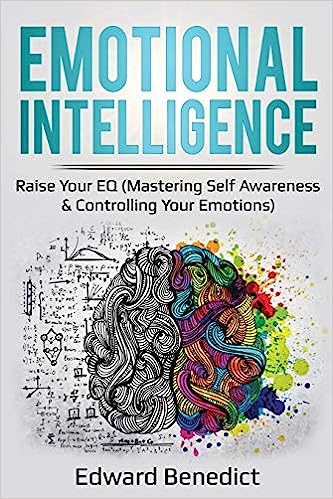
2. Working with Emotional Intelligence
Author – Daniel Goleman

3. Emotional Intelligence: 6 Manuscripts – Emotional Intelligence X 3, Empath X 3
Author – James C. Ryder & Jessica Joly

Author – Christina Reeves, Dimitrios Spanos

Author – Daniel Kahneman
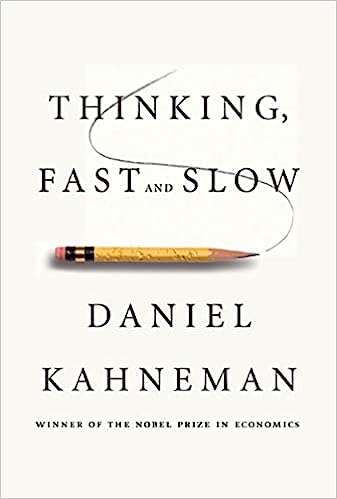
Author – Lindsay C. Gibson, PsyD
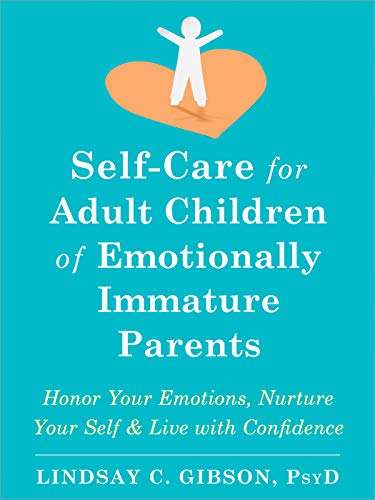
7. How Emotions Are Made: The Secret Life of the Brain
Author – Lisa Feldman Barrett
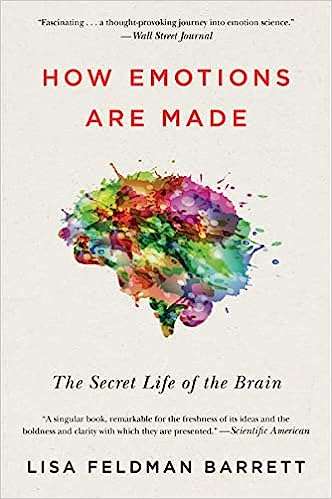
8. Master Your Emotions: A Practical Guide to Overcome Negativity and Better Manage Your Feelings
Author – Thibaut Meurisse
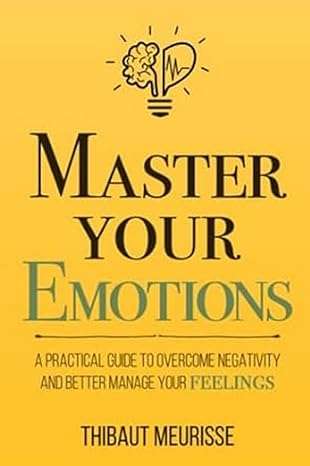
Quotes to Help You Connect with Your Emotions
1. “I don’t want to be at the mercy of emotions. I want to use them, to enjoy them, and to dominate them.” — Oscar Wilde
2. “The world is a tragedy to those who feel, but a comedy to those who think.” — Horace Walpole
3. “But feelings can’t be ignored, no matter how unjust or ungrateful they seem.” — Anne Frank
4. “When you’re feeling down, did you know that you can change it in an instant? Put on beautiful piece of music or start singing – that’ll change your emotion.” — Bob Proctor
5. “Fear and faith have lot in common. Both of these emotions require that you believe in something you can’t see.” — Bob Proctor
6. “Your emotions are nothing but biochemical storms in your brain and you are in control of them at any point in time.” — Tony Robbins
7. “We believe that 95% of your emotions are determined by the way you talk to yourself as you go throughout your day. The sad fact is that if you do not deliberately and consciously talk to yourself in a positive and constructive way, you will, by default, think about things that will make you unhappy or cause you worry and anxiety, Your mind is like a garden. If you do not deliberately plant flowers and tend carefully, weeds will grow without any encouragement at all.” — Brian Tracy
8. “Poetry is the spontaneous overflow of powerful feelings: it takes its origin from emotion recollected in tranquility.” — William Wordsworth
9. “Your feelings and emotions are your strongest indicator if your life is moving in a purposeful direction or not, so listen closely to how you feel.” — Rebecca Rosen
10. “I envy people that know love. That have someone who takes them as they are.” — Jess C Scott
11. “Everybody has a home team: It’s the people you call when you get a flat tire or when something terrible happens. It’s the people who, near or far, know everything that’s wrong with you and love you anyways. These are the ones who tell you their secrets, who get themselves a glass of water without asking when they’re at your house. These are the people who cry when you cry. These are your people, your middle-of-the-night, no-matter-what people.” — Shauna Niequist
Related Quotes: 51 Amazing Patience Is a Virtue Quotes For Perfect Life
Conclusion
Most of us experience emotions. At times, the intensity of these feelings may become overwhelming, but a valuable initial approach is to simply identify and label them. It is normal to experience any kind of desire, some time may be difficult to handle ourselves, like sadness, anxiety, or anger.
If you are facing difficulty in managing it, seek support and consultation from a mental healthcare professional. They can help you in understanding your concerns. Remember, seeking help is a courageous step towards improving your well-being.




